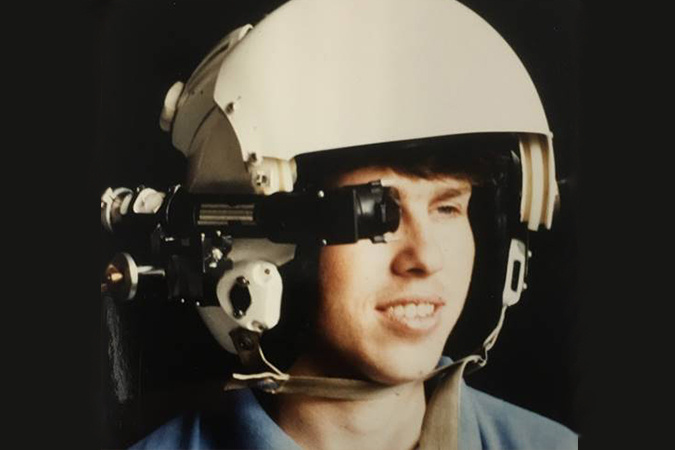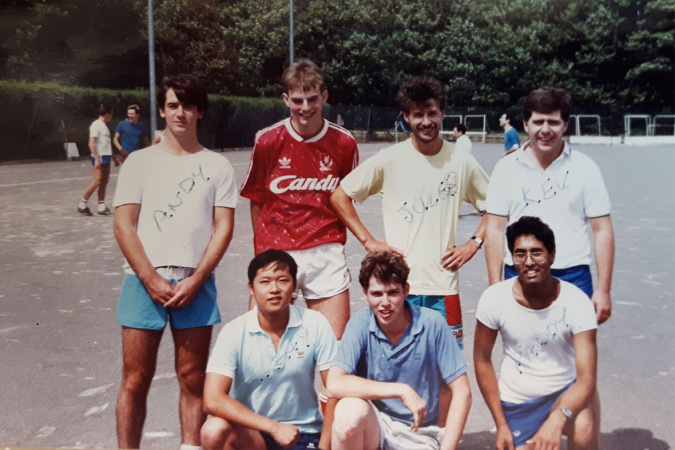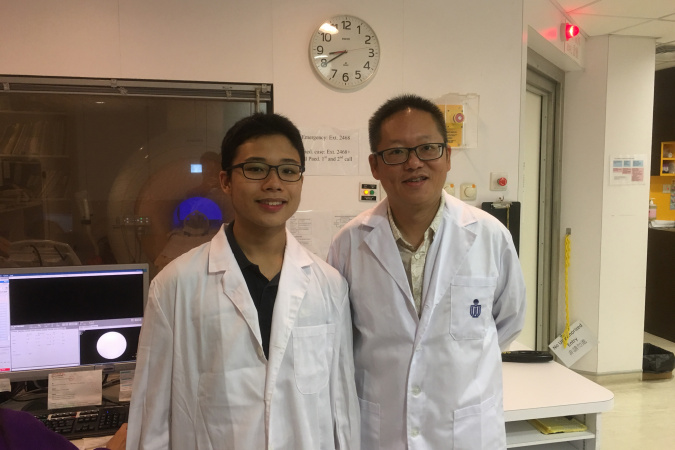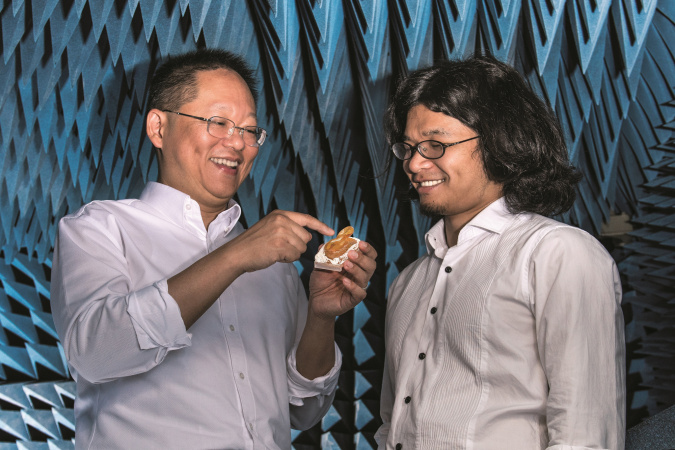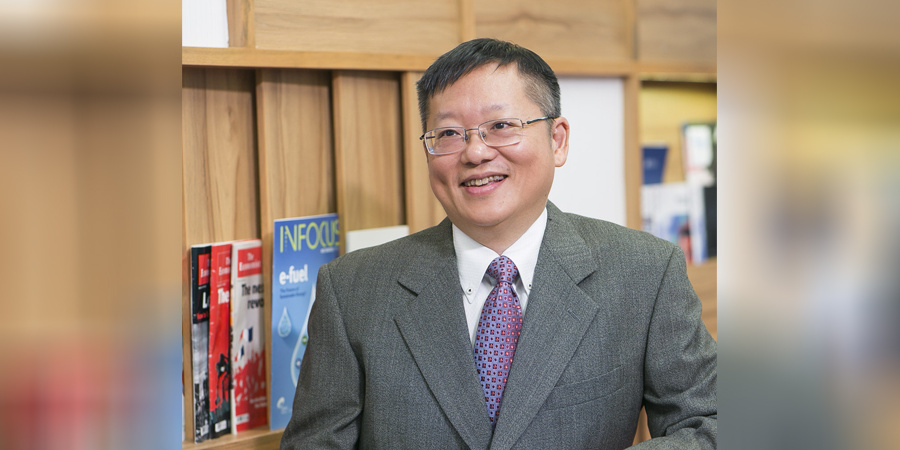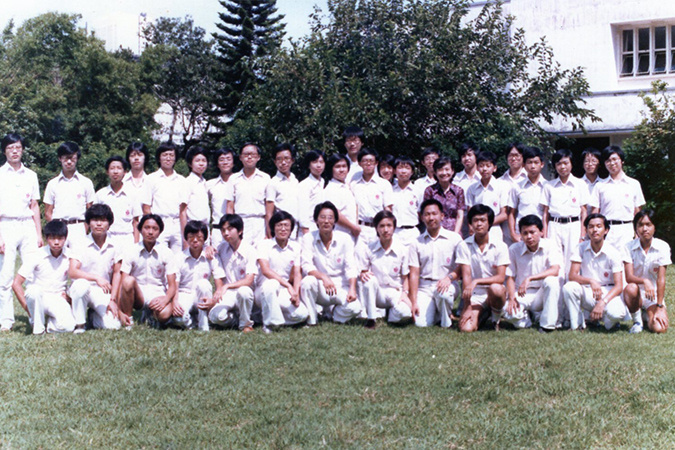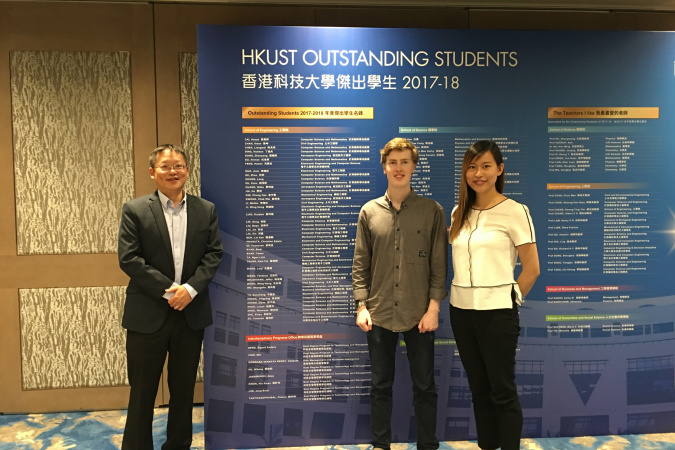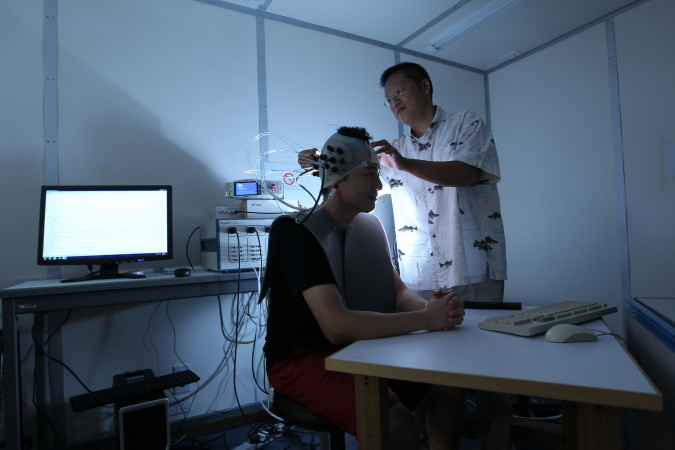Prof. Richard So – The Ergonomics Expert Living the Engineering Dream
From basic science to engineering with an impact, from building huge computers as a college boy to solving current problems involving hot virtual reality (VR) technologies, HKUST’s Associate Dean of Engineering (Research and Graduate Studies) Prof. Richard H. Y. SO talks passionately about the importance of finding one’s own dream in science and technology.
Born and bred in Hong Kong, Prof. So was an electronics enthusiast who spent much of his high school days in Sham Shui Po’s Apliu Street, often known as Hong Kong’s electronics flea market. As a member of the Electronics Club of the famous government high school Queen’s College, he and his schoolmates used to build huge, box-like computers with a number of slots and cooling fans for the school’s open day.
On the road to virtual reality
Soon after leaving Hong Kong for boarding school in the UK, Prof. So had his first turning point in life when he met Dr. John Hughes at Berkhamsted School. The high school physics teacher with a PhD instilled in students the passion and curiosity in science, inspiring them to conduct experiments, work with microprocessors, build robots, write essays about quartz, and read major science journals. The teacher, who dared to make a difference by not focusing excessively on examination syllabus, became Prof. So’s role model to go for doctoral studies later in life.
Upon graduation from the University of Southampton with a BSc in Electronic Engineering, Prof. So became a full-time research assistant in his alma mater while working towards a PhD in Engineering and Applied Sciences on a part-time basis in the same university. There came the second turning point in his life: as his research assistantship was sponsored by the US Air Force, he had the chance to conduct research on F-16 flight simulator, the very technology that marked the beginning of virtual reality for flight simulation used by pilots.
Thus began Prof. So’s quest for bio-inspired information and human factors to build algorithms and simulate intelligently how human beings perceive signals, including visual, auditory and other signals, to make decisions.
From electronics to ergonomics
“In the US system, simulators belong to the area of industrial engineering. This was how I as an electronics engineer became heavily involved in the latter,” he explained. “Today, I am 60% involved in electronics, and 40% in biology and human factors. Whereas technology changes rapidly, human beings basically remain the same for thousands of years. There are still lots of areas about humans which are unknown to scientists, and I found these most intriguing.”
One example is how human beings recognize patterns with tremendous precision. “When human beings see a face, we know it is a face. The brain takes the information, reconstructs it and tells us that it looks like a face. Although our brains only have limited memory capacity, we are able to recognize important elements and then recall them at important times; memories come back through reconstruction.”
Specializing in ergonomics, human factors and functional brain study with a focus on human visual and auditory systems, Prof. So’s expertise in bio-inspired smart algorithm has made him the first in Hong Kong to be elected a Fellow of International Ergonomics Association in 2014, an honor held by less than 100 people worldwide at the time of election. “When certain parts of the brain function, they use oxygen. Using magnetic resonance imaging (MRI) or near-infrared spectroscopy (NIRS) to detect the parts of the brain which have higher oxygenated blood level during certain activities, we can find out which part does what. We then construct algorithm to simulate human ability.”
His research has been applied to the invention of hearing aids which isolate desired sounds from unwanted noise. Yet another invention aims to prevent players of virtual reality to have uncomfortable feelings of dizziness, a phenomenon that bothers one-third of the players after prolonged exposure.
In fact one of his biggest achievements is related to the promotion of ergonomics. “In 2007, I founded the First International Symposium on Visually Induced Motion Sickness, which has since then become a biannual event held in different continents and hosted by various parties. It will return to Hong Kong and Shenzhen in 2019 with the additional theme of audio-induced motion sensation. I am glad that it has aroused interest among intellectuals globally and put Hong Kong on the map in relation to the specialization.”
As a professor in HKUST’s Department of Industrial Engineering and Decision Analytics (IEDA), Prof. So elaborates on the evolution of the field. “Industrial Engineering (IE) is an engineering discipline to help industries in ways which are highly multidisciplinary. Throughout the centuries, its focus has evolved from manufacturing to mass-customization, followed by logistics and global distribution, to the current fourth phase on decision analytics. It constantly ‘chases after’ bottlenecks in industrial processes to help solve increasingly advanced problems. Now that former problems in the first three phases have become controllable, we focus on what remains uncontrollable today: fluctuations in the financial market, oil prices and trade wars which affect decision-making, and thus the name ‘decision analytics’. Despite its development, the goal of IE remains the same: to analyze data, optimize performance, increase profit, lower cost and ultimately help industries yield bigger profits.”
HKUST Engineering to maintain top position
As the former Postgraduate Coordinator of the IEDA Department from 2010 to mid-2018 before taking up the Associate Dean position in July 2018, Prof. So finds it crucial to enhance students’ social life and mutual support. “Our students all have high intelligence; our job is to provide emotional support so that they can give their best performance. As IEDA is a relatively small engineering department with 18 faculty members and around 60 postgraduate students, our students need to build rapport and meet their peers from other departments. We are thus providing a common room with comfortable sofas and TV where they can get together and take breaks, as well as organizing interdepartmental gatherings and hiking trips.”
The newly appointed Associate Dean has a high regard for the HKUST School of Engineering, which has earned top positions in various league tables. “Among engineering schools of local universities, we have attracted the largest number of awardees through the Hong Kong PhD Fellowship Scheme (HKPFS), which has been established by the Hong Kong Research Grants Council (RGC) for talents worldwide to pursue PhD studies in Hong Kong. It is, nevertheless, a daunting and challenging task for us to maintain the number one position in view of keen competition.”
Prof. So continued, “To achieve this, our School has to look for innovative ways to constantly improve ourselves, such as forming alliances to access unreached countries for top talents, as well as leveraging opportunities in the Greater Bay Area. Moreover, as the Financial Secretary announced a HK$50 billion investment in science and innovation, things started moving and there emerged precious opportunities in science and technology in Hong Kong. We have to help colleagues grasp these chances, translate basic research into impact, and establish stronger links with industries, in order to achieve win-win situations for both HKUST and Hong Kong. Besides, the School of Engineering grows through cluster hiring. We claim a significant portion of the new faculty members hired by the University as one of its 25th anniversary goals.”
He believes the University is well-equipped to train postgraduate students to become professionals in research or entrepreneurship, or both. “Hong Kong needs to build a start-up and research ecosystem to nurture and retain talents. Even if their start-ups fail, the talents will learn from the experience and become more mature-minded employees who see things from wider perspectives when they join other companies.”
Growing R&D in Hong Kong
He is thrilled to see a growing R&D culture in the past two years. “Recently, some of my PhD or postdoctoral students have been hired by local start-ups to build technical, science-related careers which are rather well-paid. Asian companies including those in Mainland China and Hong Kong are gradually building their own R&D divisions, and this positive trend is spreading to small-and-medium-enterprises. When they hire R&D directors and chief scientists, Hong Kong will be able to retain talents with the promising jobs being created.”
How does Prof. So perceive himself? “Fundamentally, I would love to be a scientist. Science is about discovering new things; we don’t need to jump to conclusions about their applications: eventually they will become useful, even if the scientists pass away. Engineering is about making impact. There is no conflict between the two. Rather, they involve a cycle which sustains itself: when our dreams and pursuits meet other people’s needs in the real world, we create impact. The impact, in turn, challenges us to discover something new.”
It is Prof. So’s aspiration that HKUST students learn from their UK counterparts to take pride and ownership in basic science and research, while taking reference from the US where R&D and entrepreneurial cultures are deeply rooted even among undergraduate students.
Follow your dream in science and technology
What about his advice to young scientists and engineers? “I often use PhD thesis defense as an analogy. Even if everything goes wrong: there is no electricity or lights… your computer has crashed, and the examination committee members are mean… If these things happen, just remember one thing: you still have a bright idea to put on the table, a dream to share and chase after. Before you, there’s a gap; because of you, there’s something to fill the gap. This is your contribution, your dream in science and technology; just present it as it is.”
“Similarly, some postgraduate students have hard times feeling lonely, homesick or heartbroken when relationships fall apart during their studies. Just remind yourself why you have come to HKUST. That makes all the difference, and it is worth the journey,” noted the professor who is enthusiastically realizing his dreams in science and technology.
Related link:
